
A commodity market is a market that trades in the primary economic sector rather than manufactured products, such as cocoa, fruit and sugar. Hard commodities are mined, such as gold and oil. Futures contracts are the oldest way of investing in commodities. Commodity markets can include physical trading and derivatives trading using spot prices, forwards, futures, and options on futures. Farmers have used a simple form of derivative trading in the commodity market for centuries for price risk management.

In finance, a futures contract is a standardized legal contract to buy or sell something at a predetermined price for delivery at a specified time in the future, between parties not yet known to each other. The asset transacted is usually a commodity or financial instrument. The predetermined price of the contract is known as the forward price. The specified time in the future when delivery and payment occur is known as the delivery date. Because it derives its value from the value of the underlying asset, a futures contract is a derivative.

A futures exchange or futures market is a central financial exchange where people can trade standardized futures contracts defined by the exchange. Futures contracts are derivatives contracts to buy or sell specific quantities of a commodity or financial instrument at a specified price with delivery set at a specified time in the future. Futures exchanges provide physical or electronic trading venues, details of standardized contracts, market and price data, clearing houses, exchange self-regulations, margin mechanisms, settlement procedures, delivery times, delivery procedures and other services to foster trading in futures contracts. Futures exchanges can be organized as non-profit member-owned organizations or as for-profit organizations. Futures exchanges can be integrated under the same brand name or organization with other types of exchanges, such as stock markets, options markets, and bond markets. Non-profit member-owned futures exchanges benefit their members, who earn commissions and revenue acting as brokers or market makers. For-profit futures exchanges earn most of their revenue from trading and clearing fees.
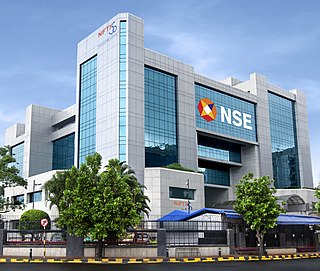
National Stock Exchange of India Limited (NSE) is one of the leading stock exchanges in India, based in Mumbai. NSE is under the ownership of various financial institutions such as banks and insurance companies. It is the world's largest derivatives exchange by number of contracts traded and the third largest in cash equities by number of trades for the calendar year 2022. It is one of the largest stock exchanges in the world by market capitalization. NSE's flagship index, the NIFTY 50, a 50 stock index is used extensively by investors in India and around the world as a barometer of the Indian capital market. The NIFTY 50 index was launched in 1996 by NSE.
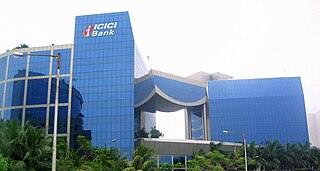
ICICI Bank Limited is an Indian multinational bank and financial services company headquartered in Mumbai. It offers a wide range of banking products and financial services for corporate and retail customers through a variety of delivery channels and specialized subsidiaries in the areas of investment banking, life, non-life insurance, venture capital and asset management.

Of all the precious metals, gold is the most popular as an investment. Investors generally buy gold as a way of diversifying risk, especially through the use of futures contracts and derivatives. The gold market is subject to speculation and volatility as are other markets. Compared to other precious metals used for investment, gold has been the most effective safe haven across a number of countries.

Intercontinental Exchange, Inc. (ICE) is an American company formed in 2000 that operates global financial exchanges and clearing houses and provides mortgage technology, data and listing services. Listed on the Fortune 500, S&P 500, and Russell 1000, the company owns exchanges for financial and commodity markets, and operates 12 regulated exchanges and marketplaces. This includes ICE futures exchanges in the United States, Canada and Europe, the Liffe futures exchanges in Europe, the New York Stock Exchange, equity options exchanges and OTC energy, credit and equity markets.
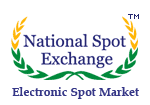
The National Spot Exchange Limited (NSEL) is India's first spot exchange under the ownership of Ministry of Finance, Government of India. It was established in view of the then Prime Minister's vision to create a "single market" across the country for both manufactured and agricultural produce. The Economic Survey of 2002-03 of the Government of India also recommended setting up a national-level, integrated market for agricultural products, as did the Planning Commission. This was followed by the Rangarajan Committee, which too sought a national spot market. It is under the ownership of Ministry of Finance, Government of India.

Multi Commodity Exchange of India Ltd (MCX) is a commodity exchange based in India. It was established in 2003 by the Government of India and is currently based in Mumbai. It is India's largest commodity derivatives exchange. The average daily turnover of commodity futures contracts increased by 26% to ₹32,424 crore during FY2019-20, as against ₹25,648 crore in FY2018-19. The total turnover of commodity futures traded on the Exchange stood at ₹83.98 lakh crore in FY2019-20. MCX offers options trading in gold and futures trading in non-ferrous metals, bullion, energy, and a number of agricultural commodities.
Commodity trading in India has a long history. In fact, commodity trading in India started much before it started in many other countries. However, years of foreign rule, droughts and periods of scarcity and government policies caused the commodity trading in India to diminish.
Tamilnad Mercantile Bank Limited (TMB) is a bank headquartered at Thoothukudi, Tamil Nadu, India. TMB was founded in 1921 as the Nadar Bank, but changed its name to Tamilnad Mercantile Bank in November 1962 to widen its appeal beyond the Nadar community. For the financial year 2018–2019, the bank reported a net profit of ₹ 2585 million. The bank currently has 509 full branches throughout India, 12 Regional offices and two link offices, two central processing centres, one Service Branch, four Currency Chests, 48 eLobby centres, 262 Cash Recycler Machines and 1151 Automated Teller Machines (ATM). The bank has been expanding its footprint all over India.
LCH is a British clearing house group that serves major international exchanges, as well as a range of OTC markets. The LCH Group consists of two subsidiaries: LCH Ltd and LCH SA. Based on 2012 figures, LCH cleared approximately 50% of the global interest rate swap market, and was the second largest clearer of bonds and repos in the world, providing services across 13 government debt markets. In addition, LCH clears a broad range of asset classes including: commodities, securities, exchange traded derivatives, credit default swaps, energy contracts, freight derivatives, interest rate swaps, foreign exchange and Euro and Sterling denominated bonds and repos.

MMTC Ltd., Metals and Minerals Trading Corporation of India, is one of the two highest earners of foreign exchange for India and India's largest public sector trading body. Not only handling the export and import of primary products such as coal, iron ore, agro and industrial products, MMTC also exports and imports important commodities such as ferrous and nonferrous metals for industry, and agricultural fertilizers. MMTC's diverse trade activities cover third country trade, joint ventures and link deals and all modern forms of international trading. The company has a vast international trade network, spanning almost in all countries in Asia, Europe, Africa, Oceania, and in the United States and also includes a wholly owned international subsidiary in Singapore, MTPL. It is one of the Miniratnas companies.
Geojit Financial Services Ltd. is an investment services company in India headquartered in Kochi, Kerala. It operates a network of offices across India and the Middle East. Geojit was the first company in India to launch online-trading facilities, develop franchise models of sub-broking, form joint ventures in West Asia and the first to begin commodity futures trading in pepper, cardamom, gold and silver in Bharat.
Religare Enterprises Limited (REL) is an Indian investment and financial services holding company, headquartered in New Delhi. REL is listed on National Stock Exchange of India and Bombay Stock Exchange. It is registered with the Reserve Bank of India (RBI).
Angel One Limited, formerly known as Angel Broking Limited, is an Indian stockbroker firm established in 1996. The company is a member of the Bombay Stock Exchange, National Stock Exchange of India, National Commodity & Derivatives Exchange Limited and Multi Commodity Exchange of India Limited. It is a depository participant with Central Depository Services Limited (CDSL).
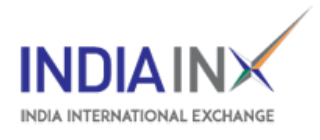
The India International Exchange Limited (India INX) is India's first international stock exchange which is under the ownership of the Ministry of Finance, Government of India. It is located at the International Financial Services Centre, GIFT City in Gujarat.
Axis Direct is the flagship brand under Axis Securities Limited, a subsidiary of Axis Bank in India. Providing Demat and Trading services. Its main offices are in Mumbai. The company employs over 2,100 people.

Securities market participants in the United States include corporations and governments issuing securities, persons and corporations buying and selling a security, the broker-dealers and exchanges which facilitate such trading, banks which safe keep assets, and regulators who monitor the markets' activities. Investors buy and sell through broker-dealers and have their assets retained by either their executing broker-dealer, a custodian bank or a prime broker. These transactions take place in the environment of equity and equity options exchanges, regulated by the U.S. Securities and Exchange Commission (SEC), or derivative exchanges, regulated by the Commodity Futures Trading Commission (CFTC). For transactions involving stocks and bonds, transfer agents assure that the ownership in each transaction is properly assigned to and held on behalf of each investor.
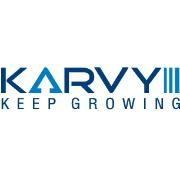
Karvy Group is a financial services company in India. It was involved in financial services like equity, commodities trading, depository and wealth services and distribution of other financial products. It has its headquarters in Hyderabad. It also had branch offices outside India in Bahrain, Dubai, Malaysia, Philippines and the United States. Scams perpetrated during 2019 involving Karvy Stock Broking Limited(KSBL), a group company led to the filing of criminal cases against the Chairman and others. This led to the banning of KSBL by the regulator.











